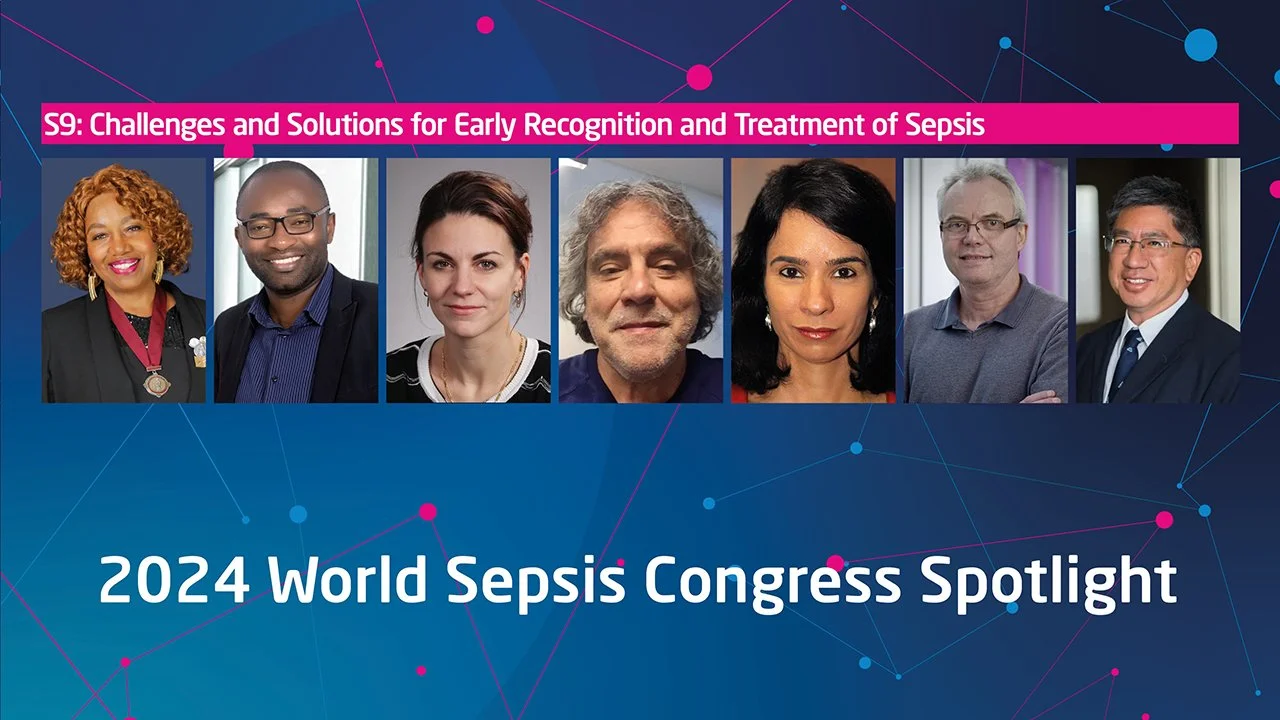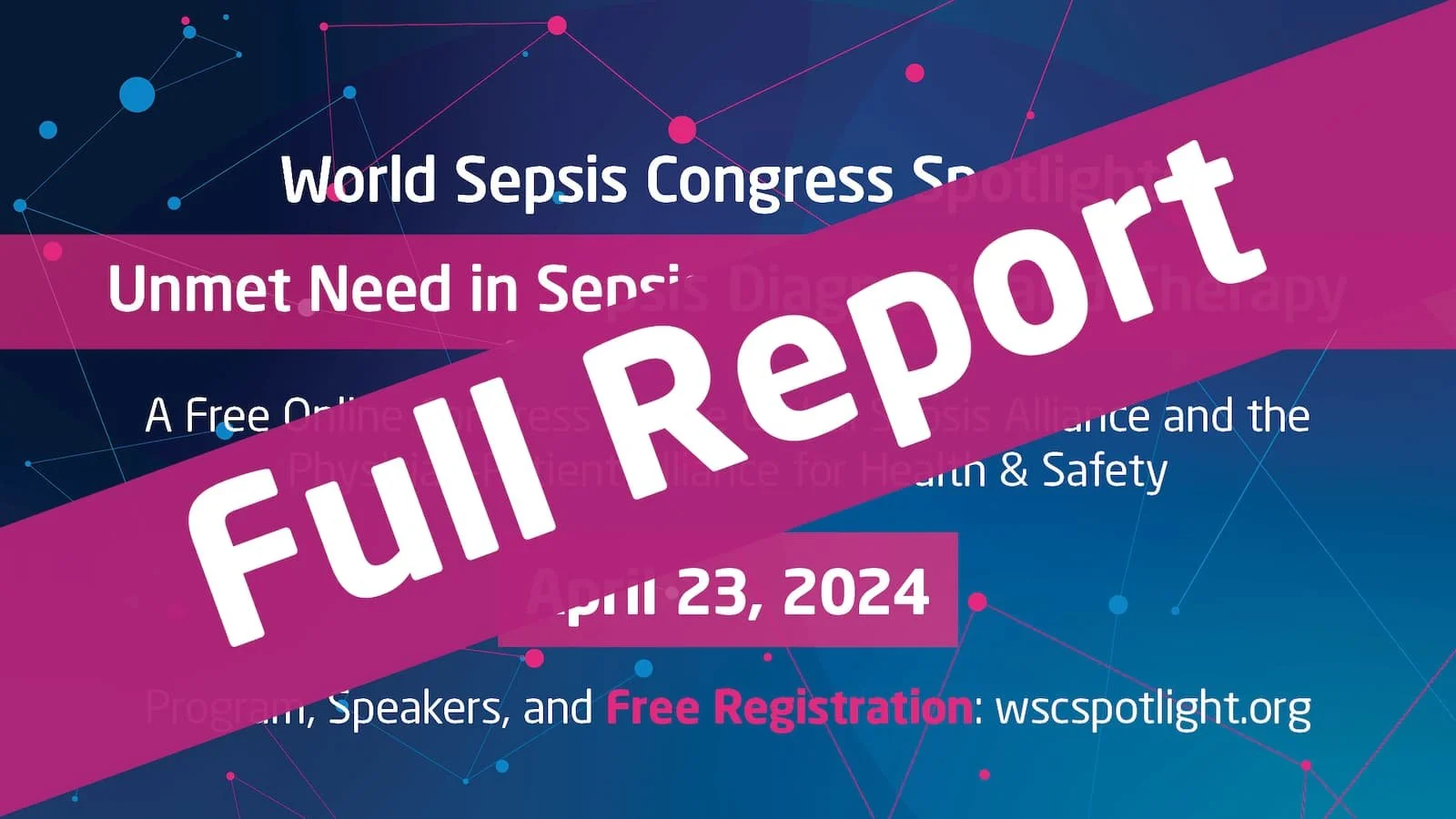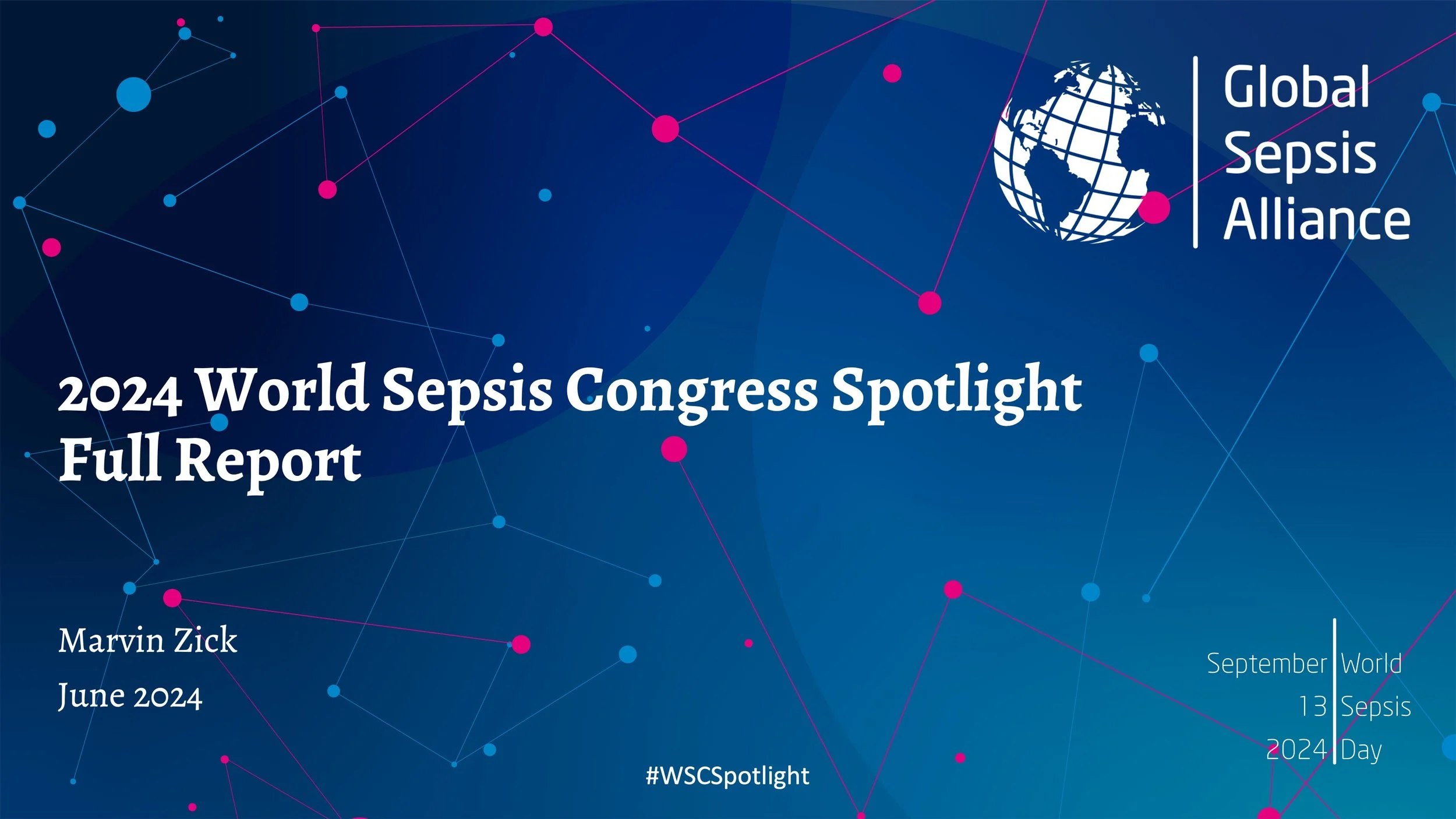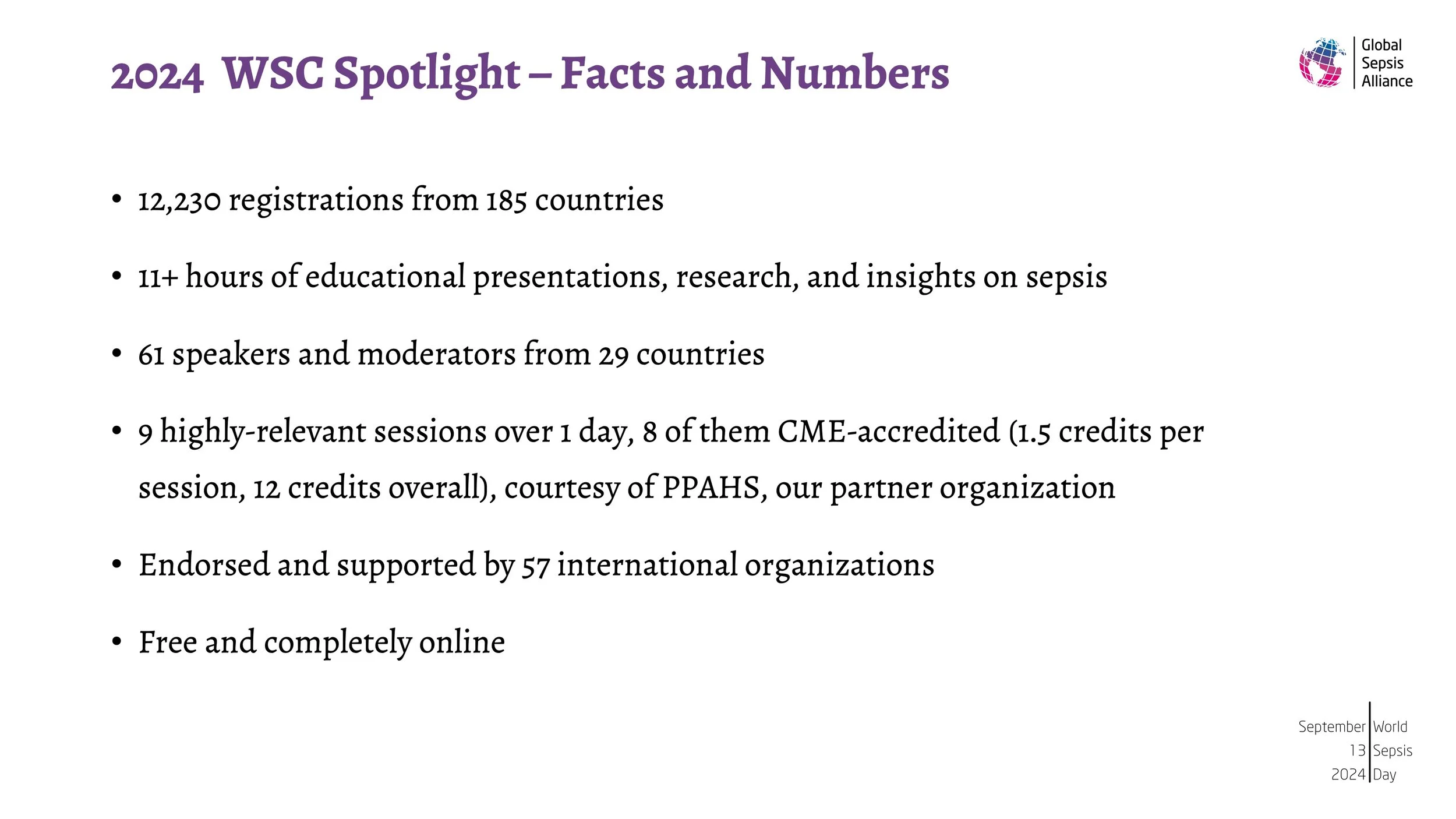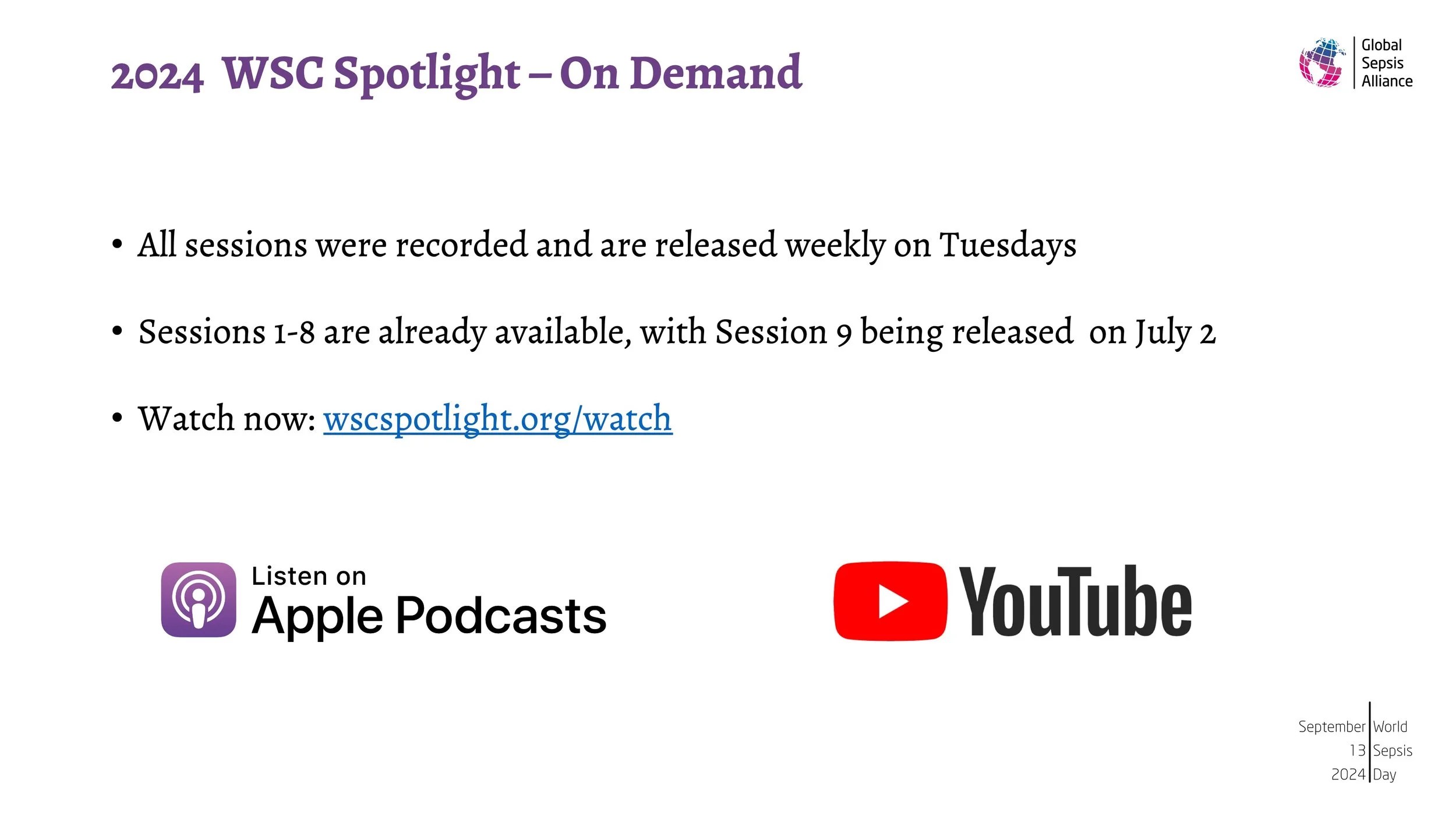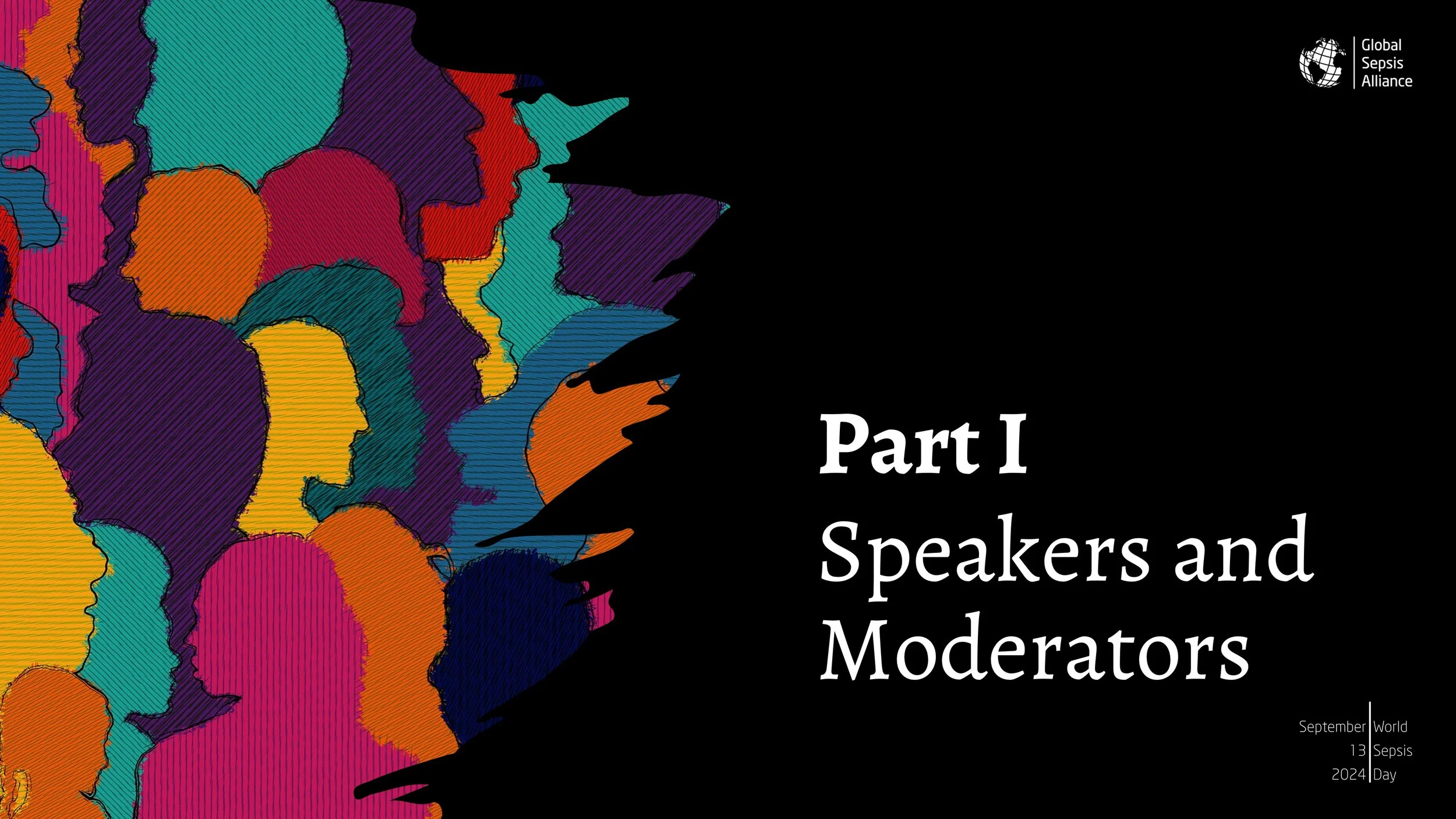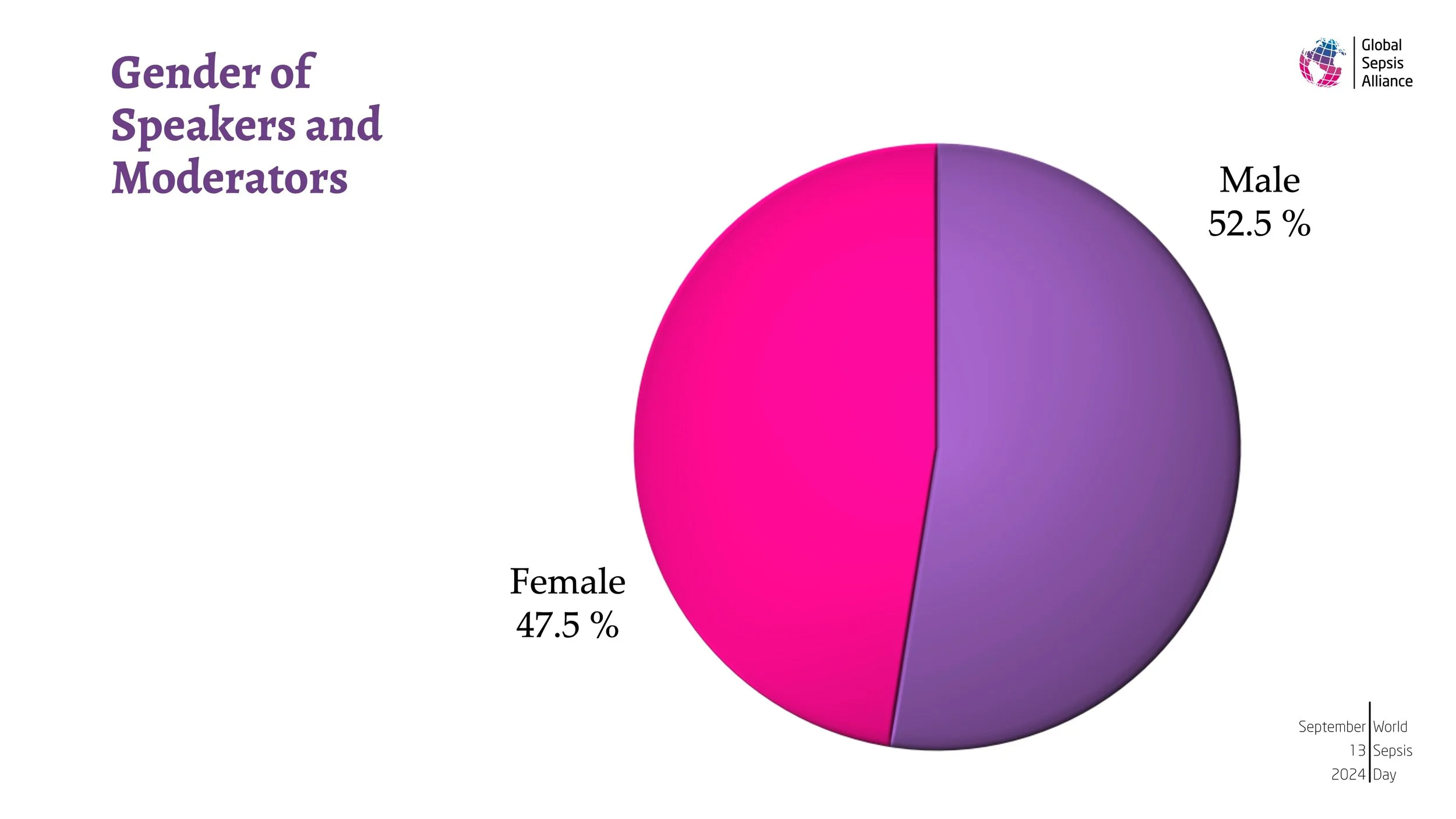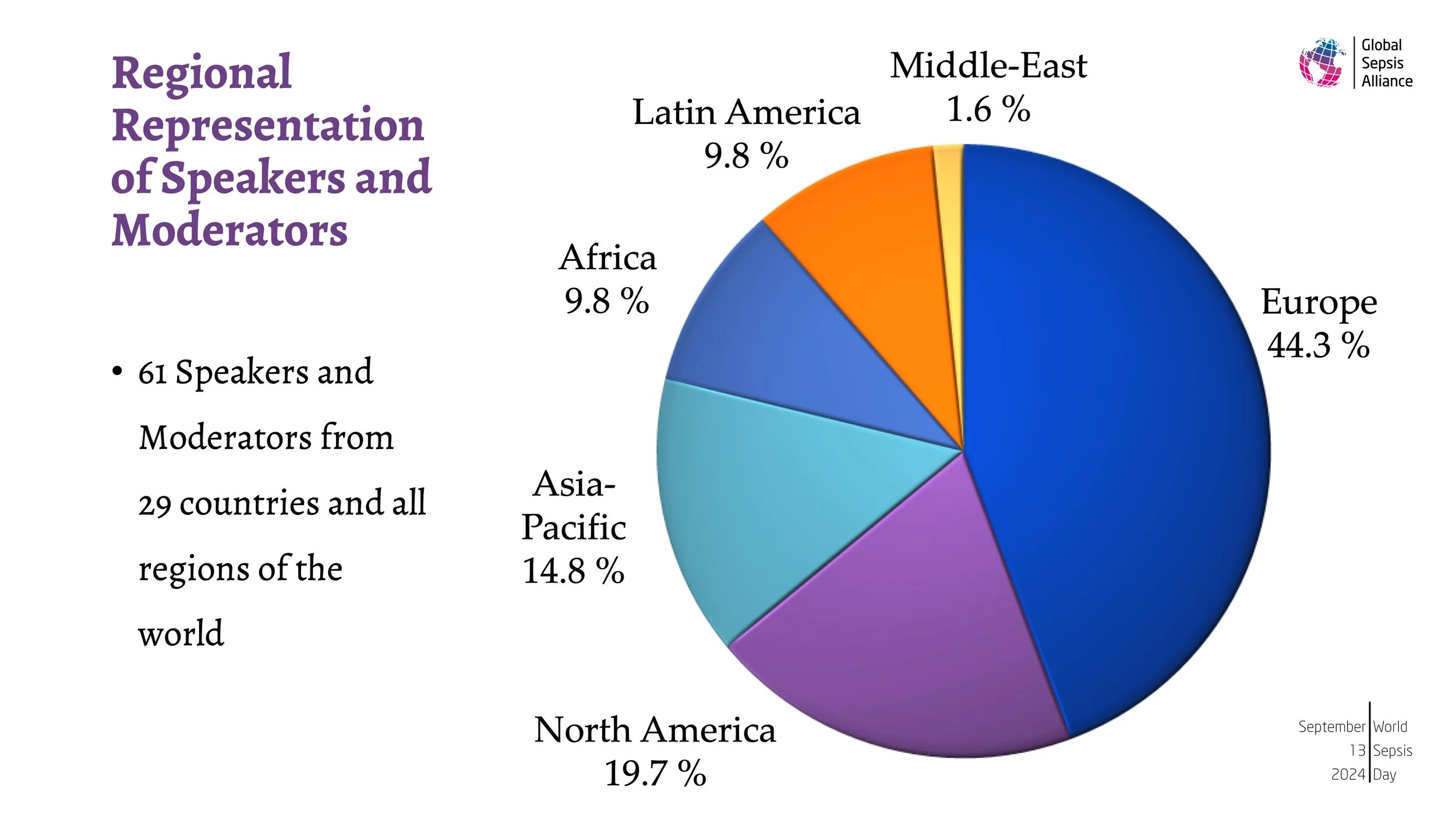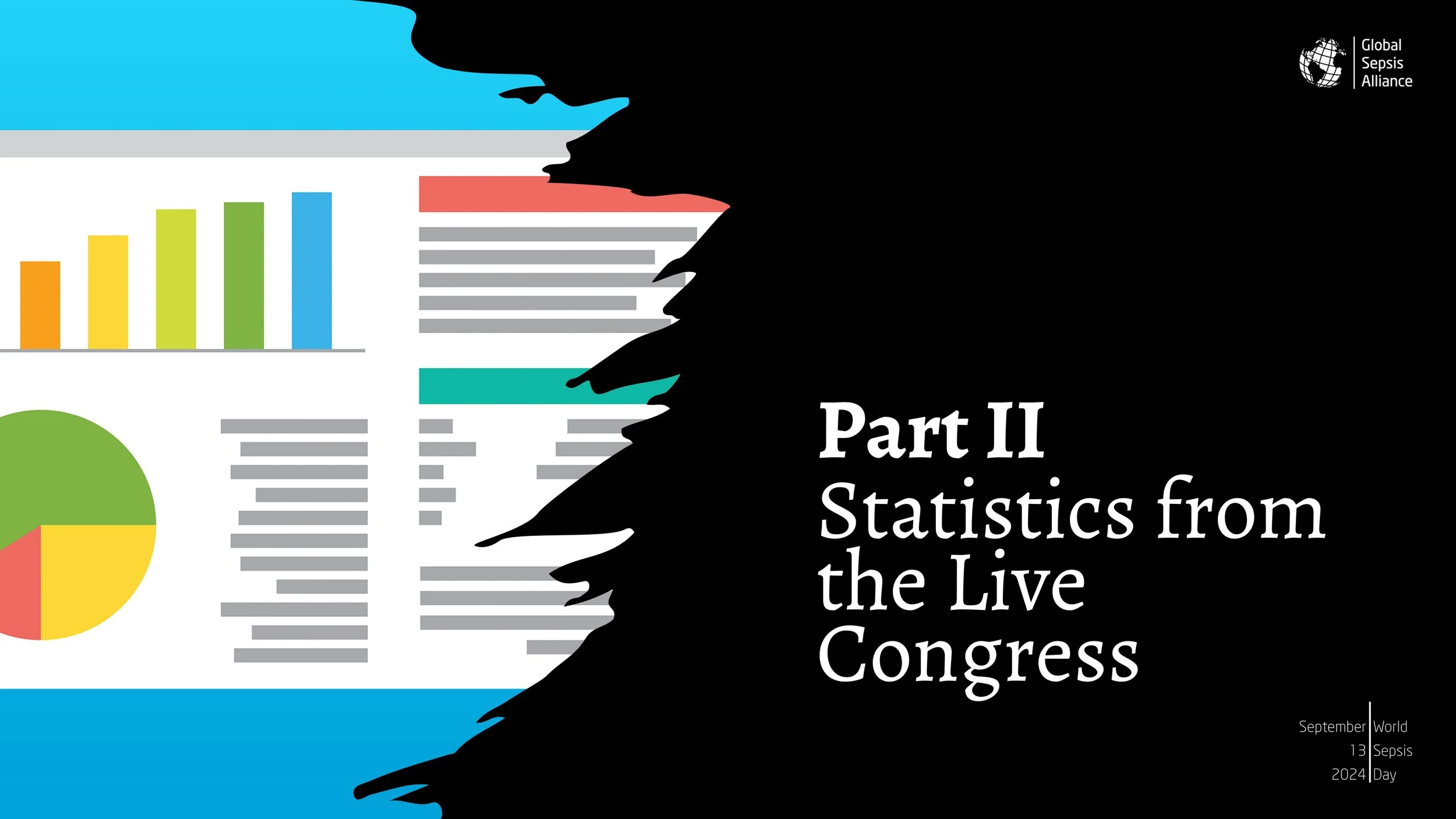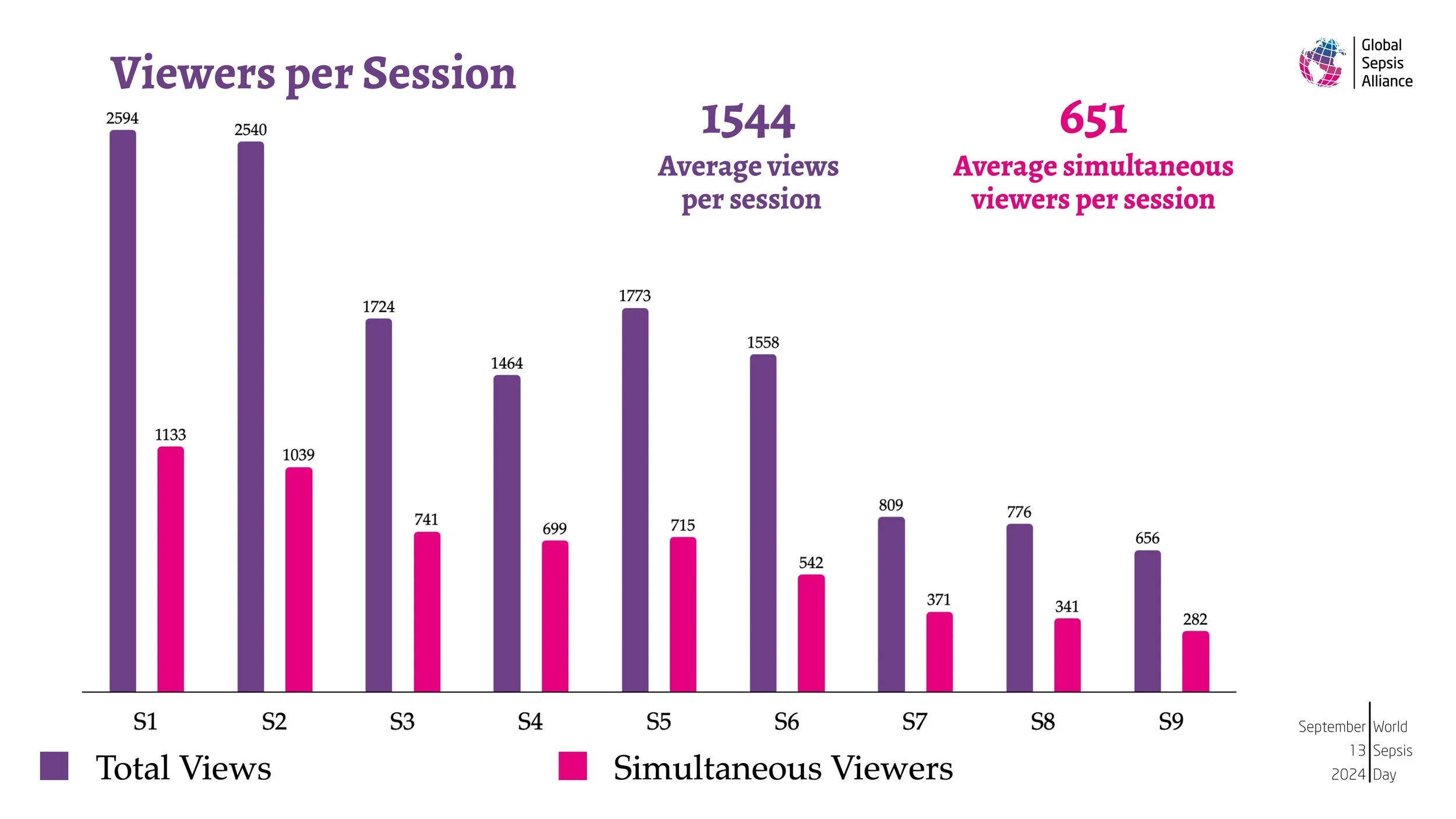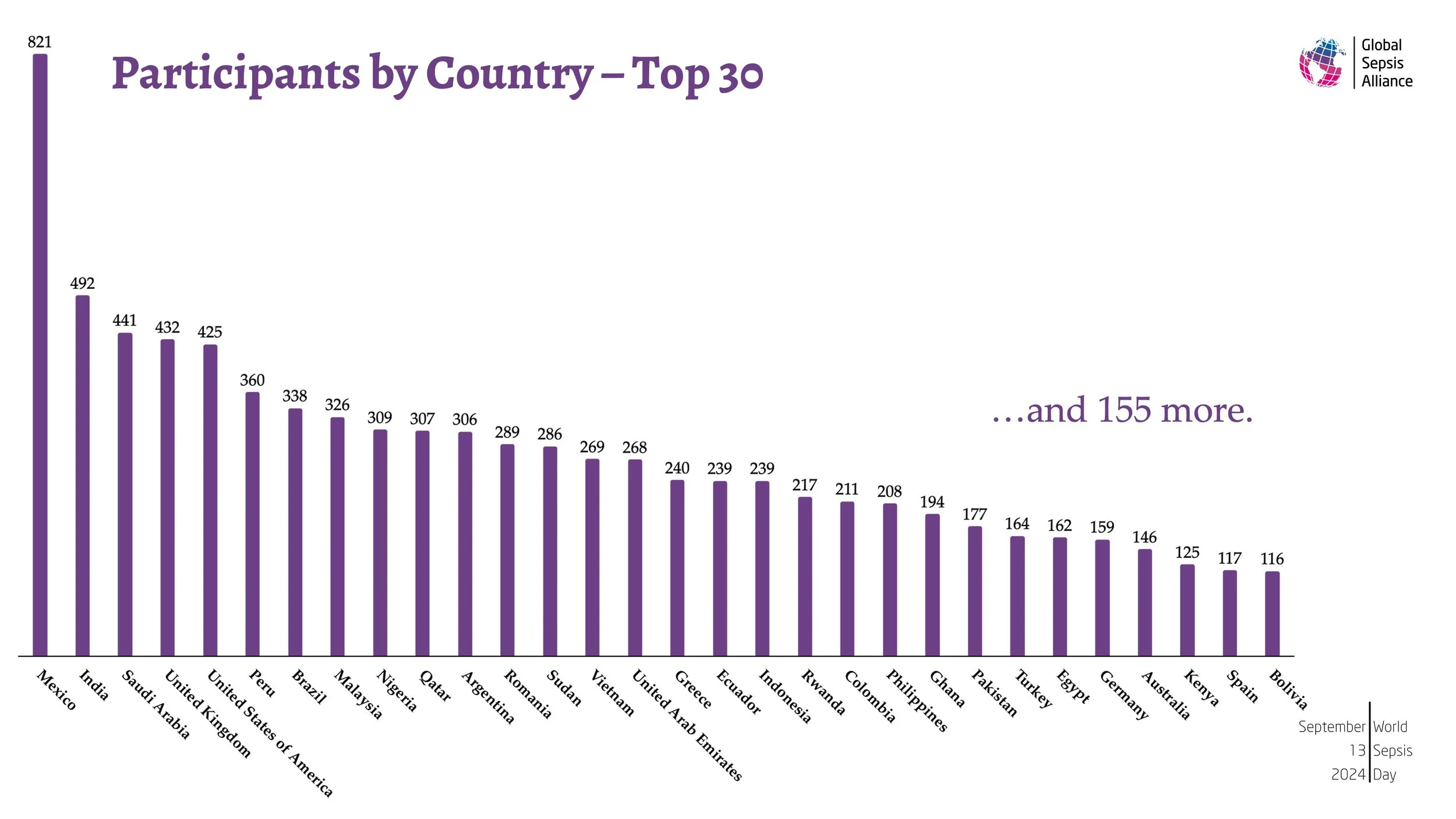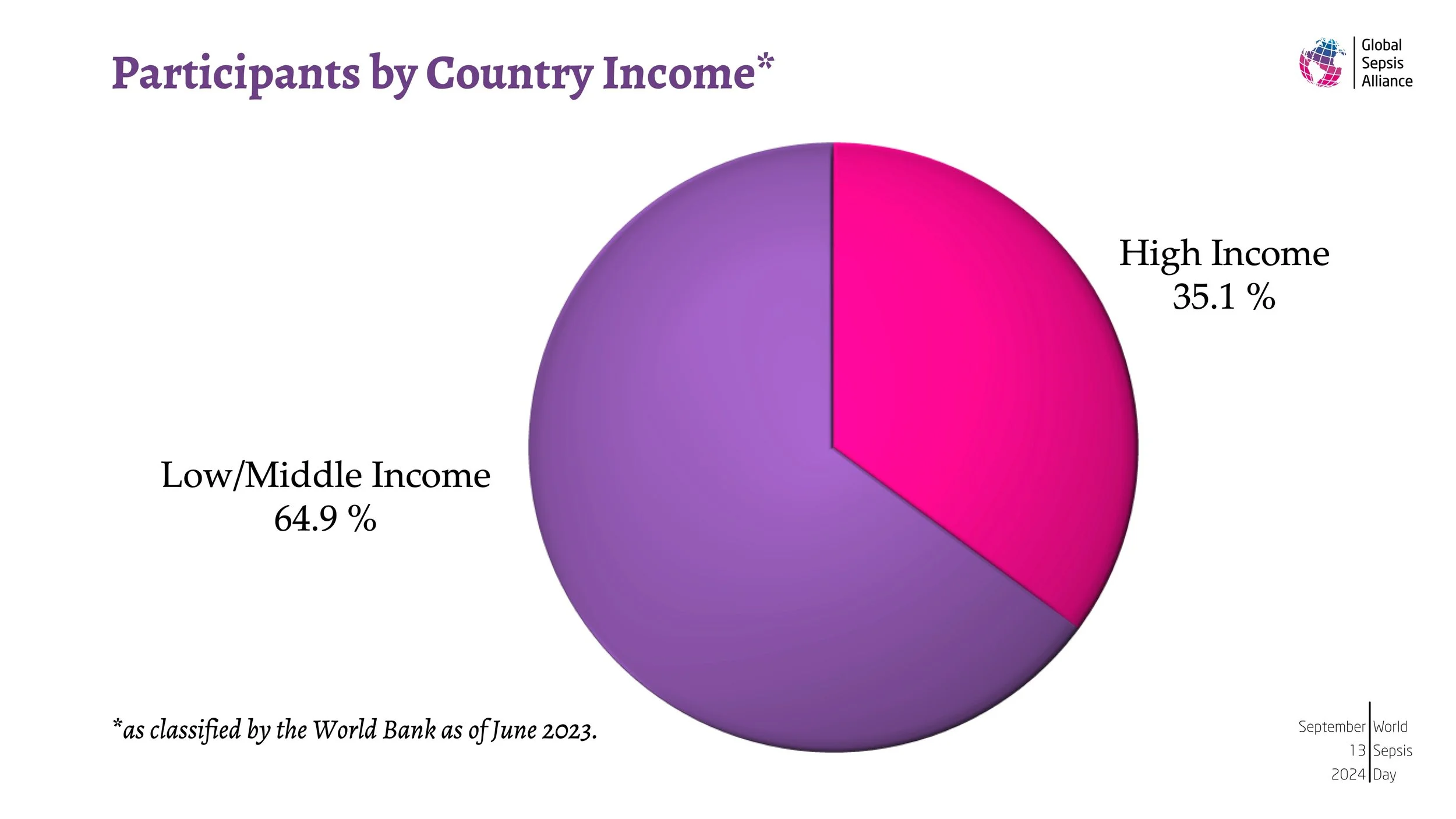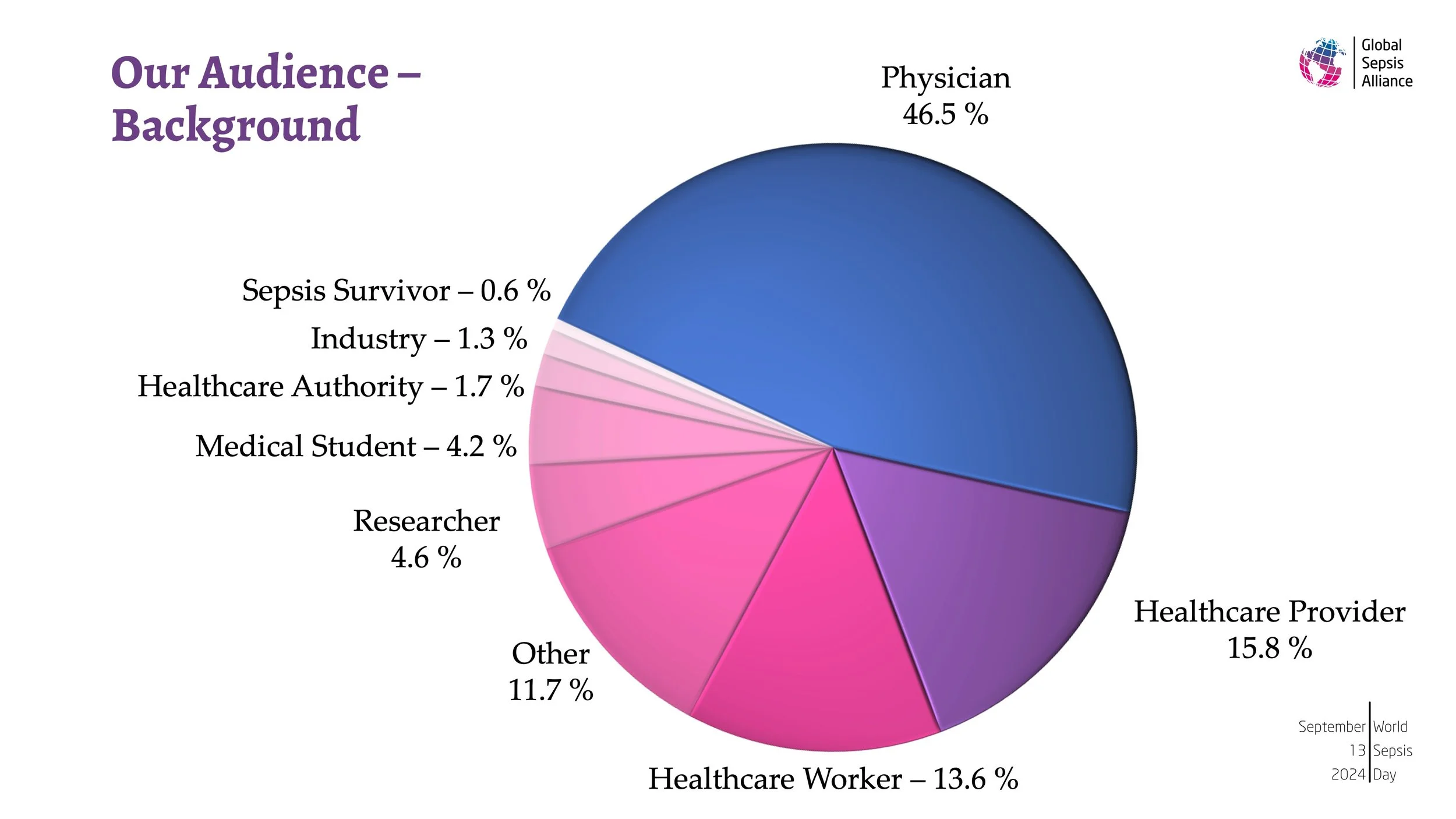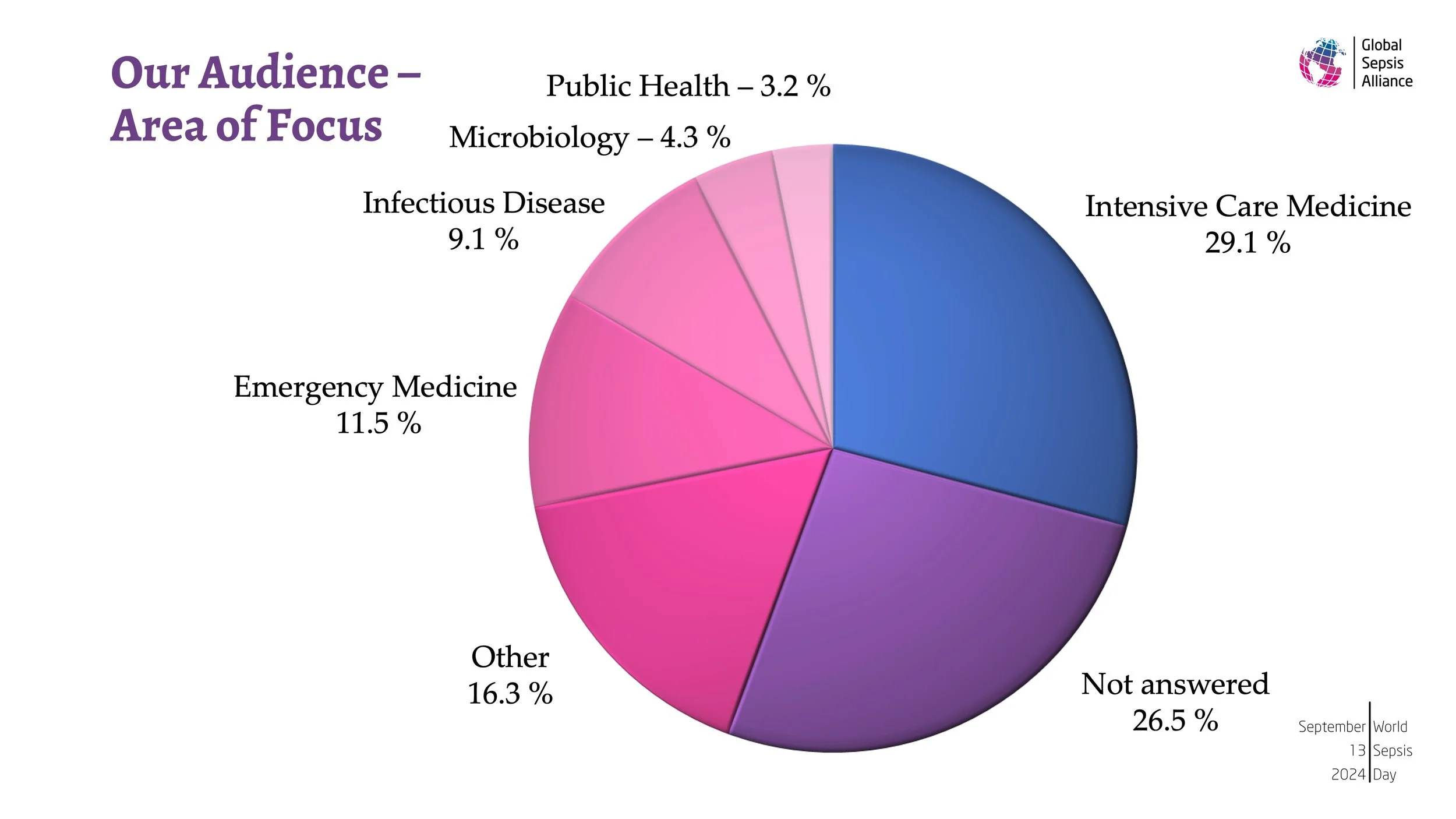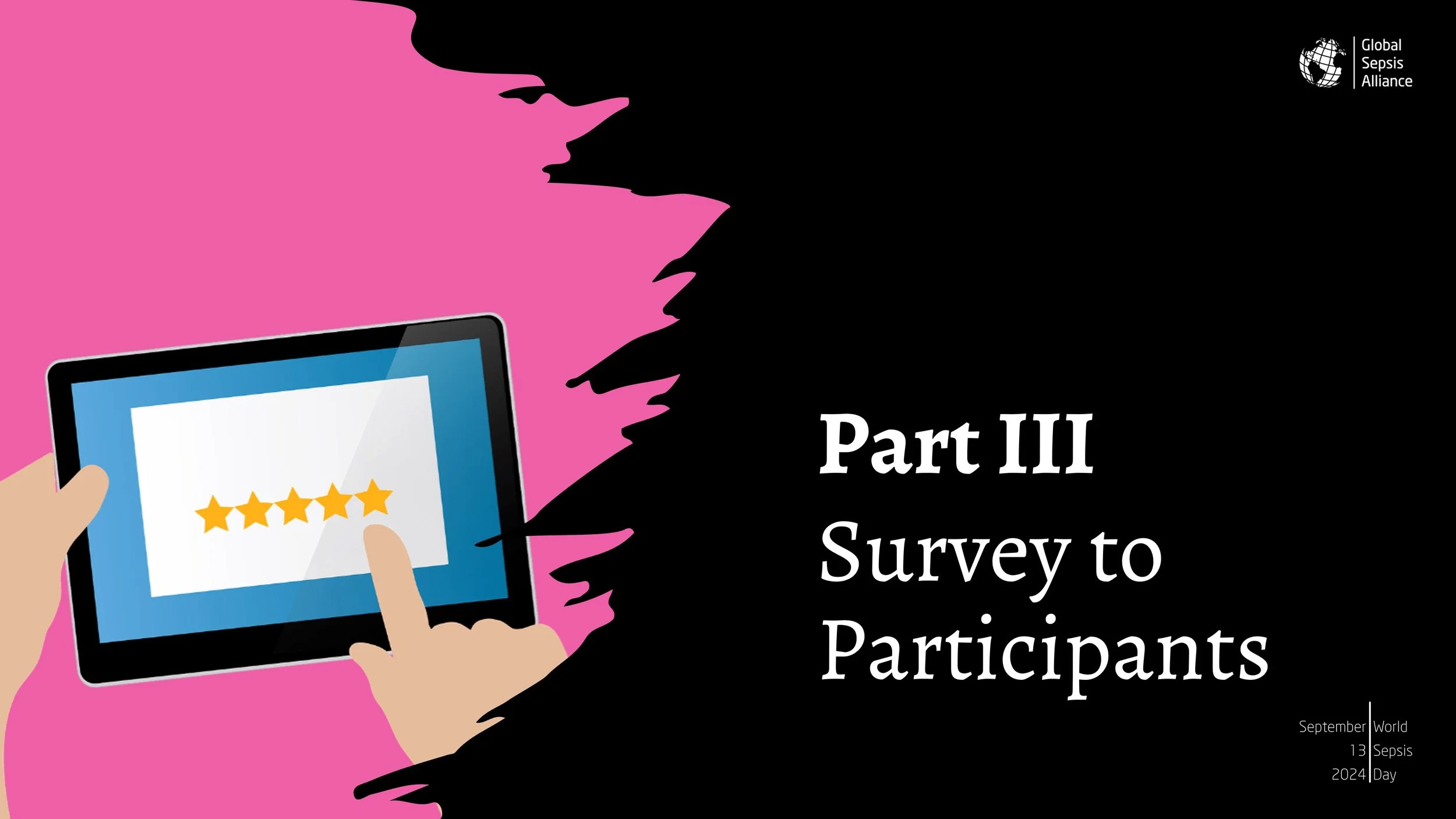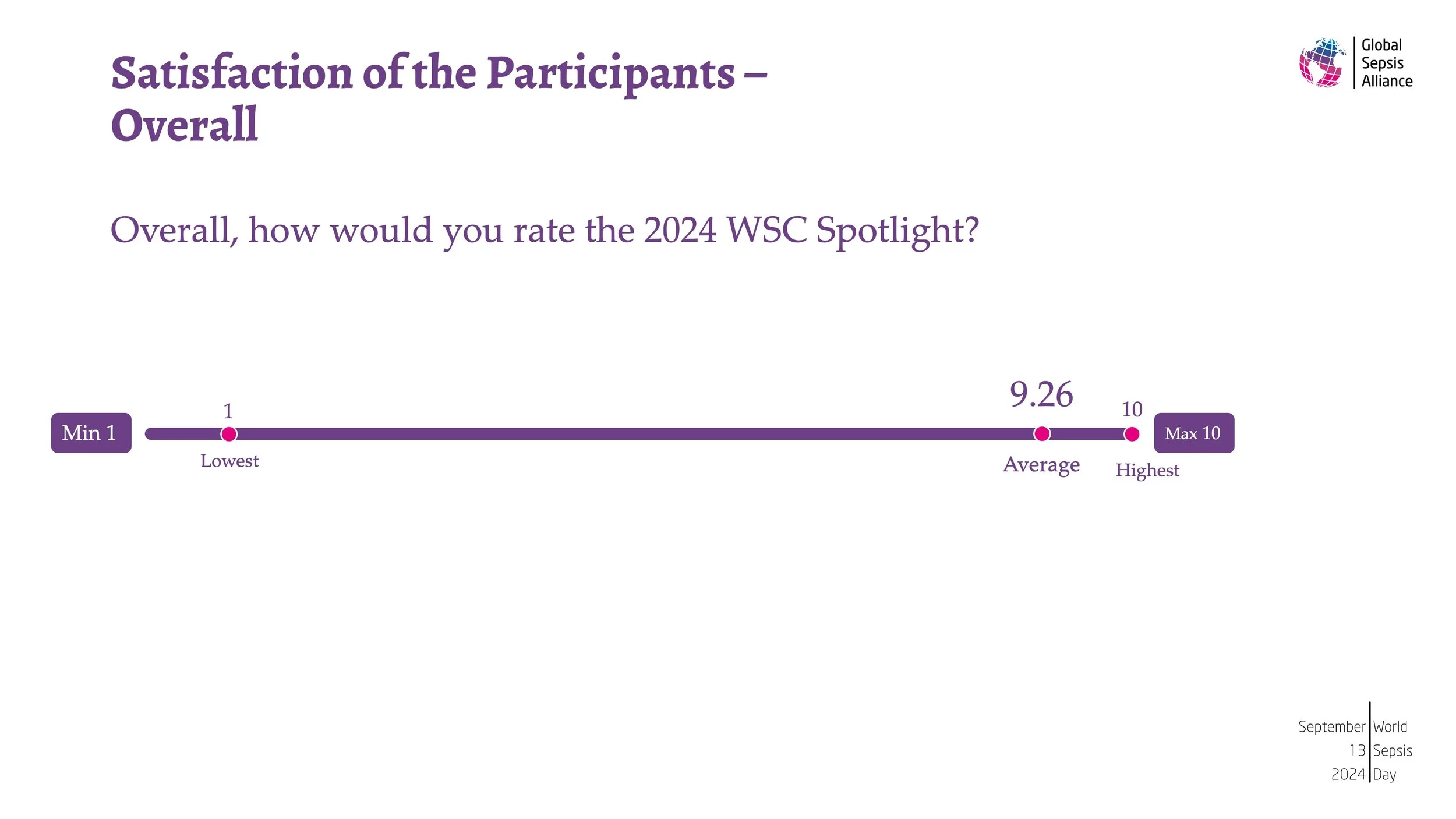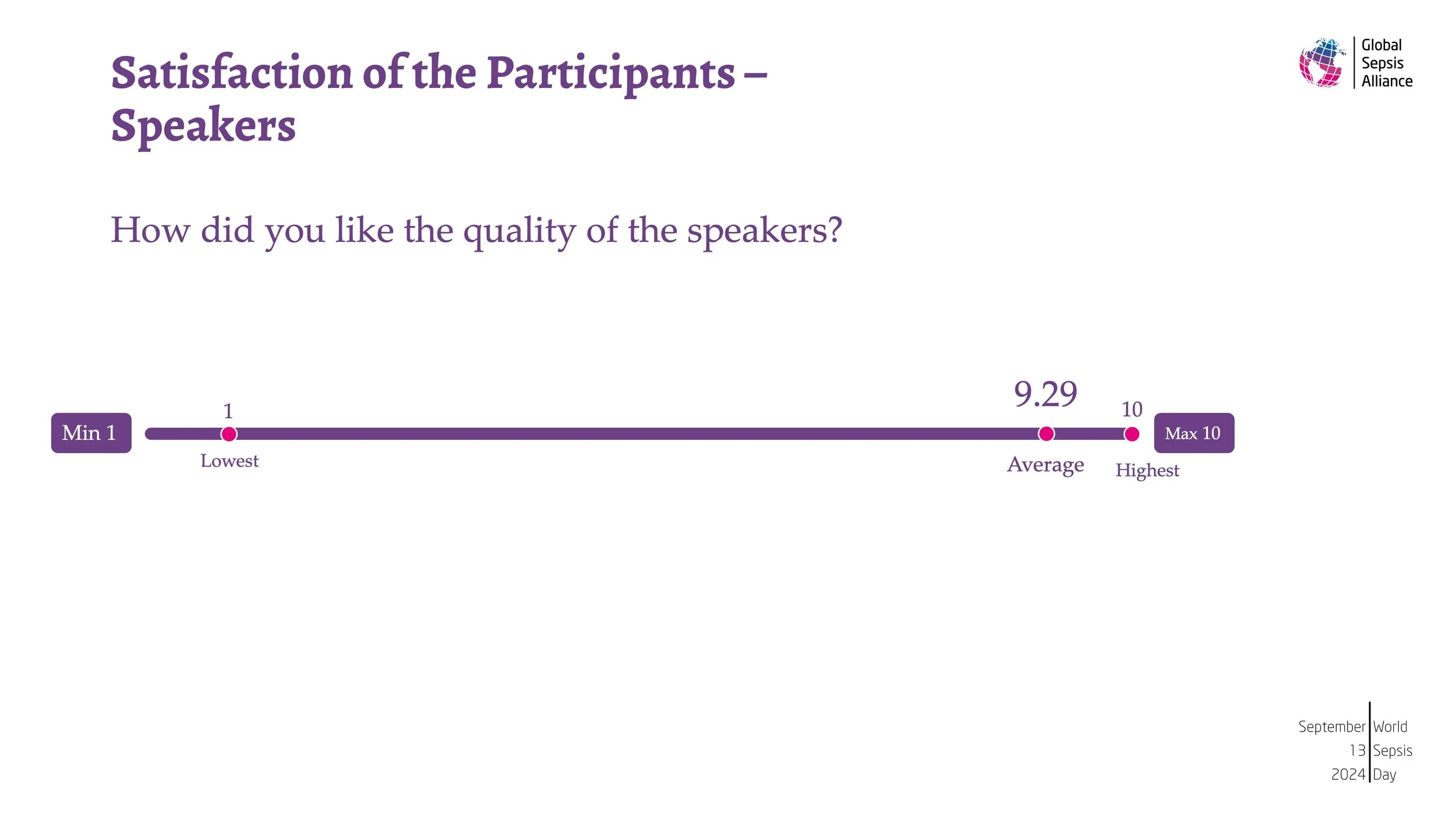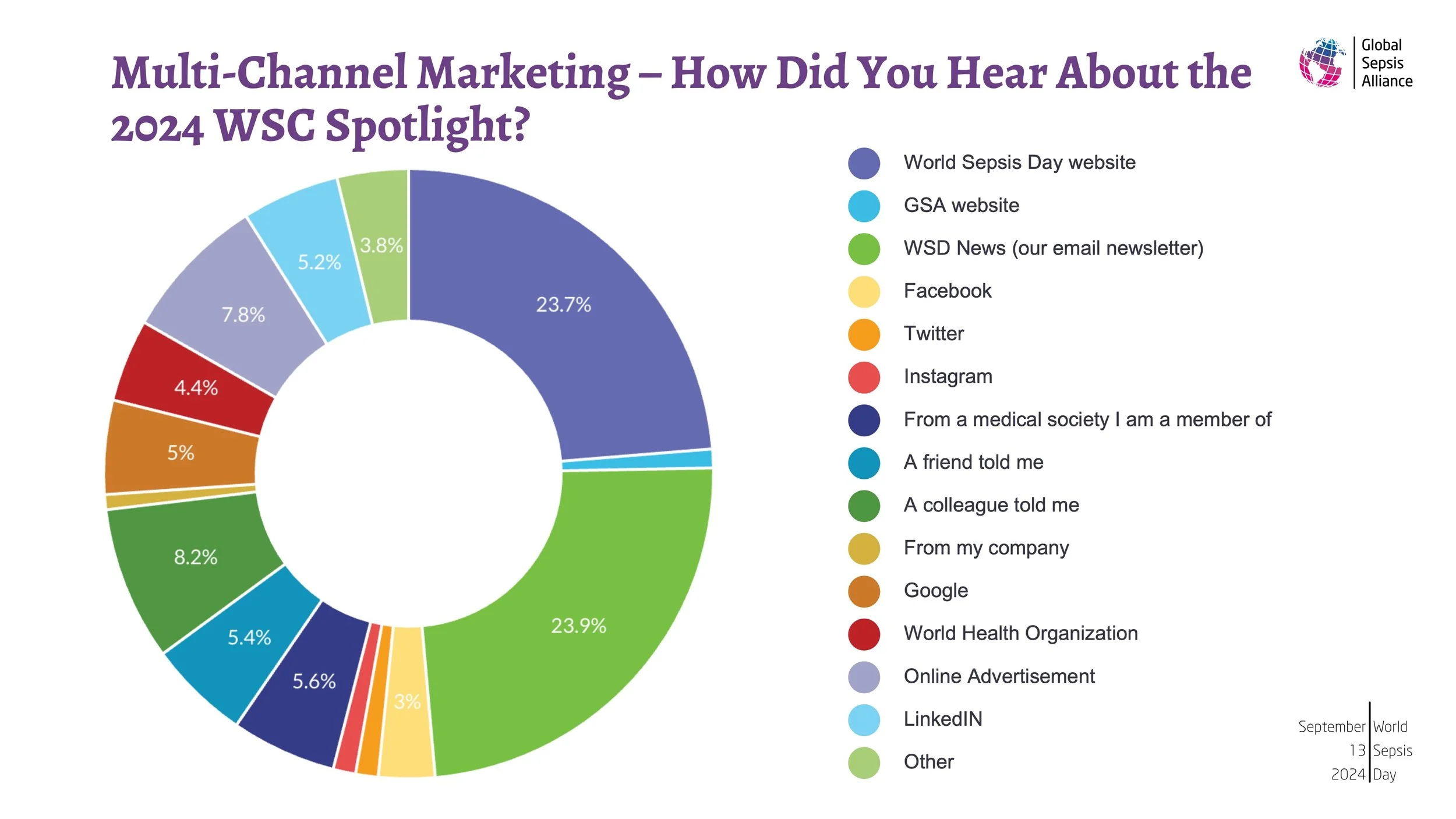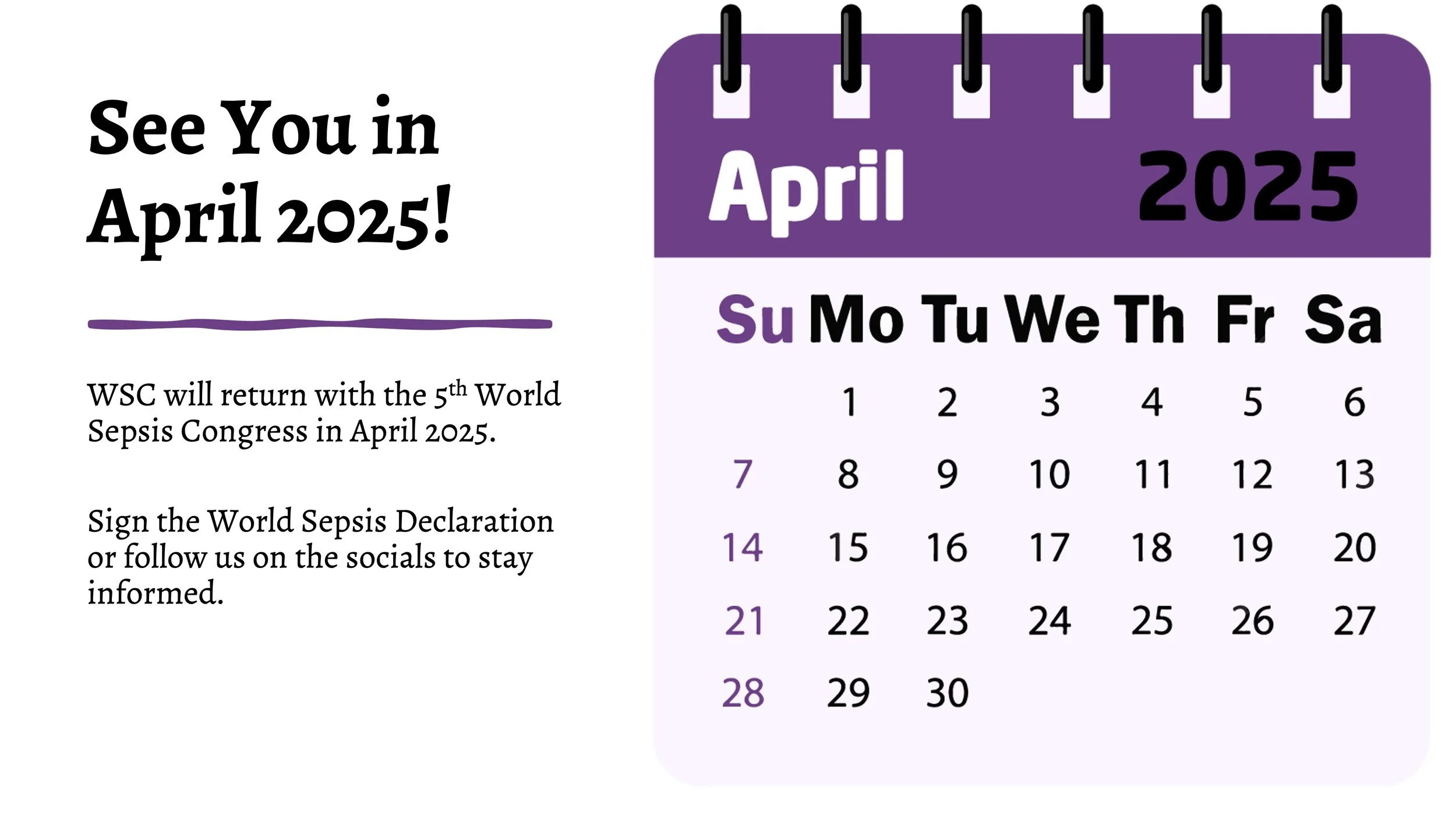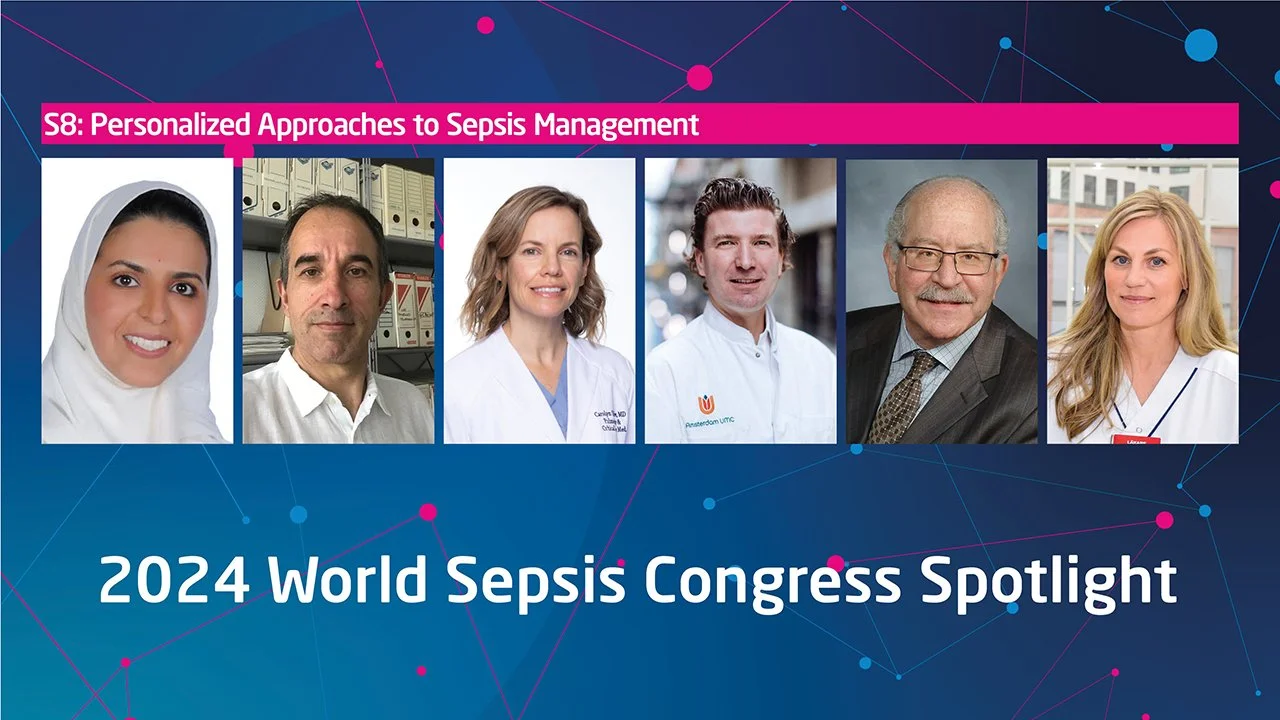Session 9 from the 2024 World Sepsis Congress Spotlight is now available on YouTube (embedded above) and as a Podcast on Apple Podcasts (search for World Sepsis Congress in your favorite podcast app).
Session 9: Challenges and Solutions for Early Recognition and Treatment of Sepsis
ARCS: Understanding Risk Factors for Delayed Presentation and Care of Sepsis Patients in DRC, Nigeria, and Sierra Leone
Patrick de Marie Katoto, Catholic University of Bukavu, DRC
Sepsis Check – A Preclinical Checklist for Early Detection and Education
Wiltrud Abels, Charité – Universitätsmedizin Berlin, Germany
Early Resuscitation of Septic Shock in the ED – Which Perfusion Parameters for Target Resuscitation?
Glenn Hernández Poblete, Pontifical Catholic University of Chile, Chile
Sepsis in Brazilian Emergency Departments: A Prospective Multicenter Observational Study
Flavia Machado, Latin American Sepsis Institute, Brazil
Smart Triage: Electronic Support for Early Recognition and Triage of Severely Ill Patients in Ugandan Emergency Departments
Mark Ansermino, BC Children’s Hospital, Canada
Closing Remarks
Michael Wong, Physician-Patient Alliance for Health & Safety, United States of America
This was the final session of the 2024 WSC Spotlight – all sessions and presentations are now available to watch/listen to.
Thank you for your interest in the 2024 WSC Spotlight over the last couple of weeks. World Sepsis Congress will return with the 5th World Sepsis Congress in April 2025.

